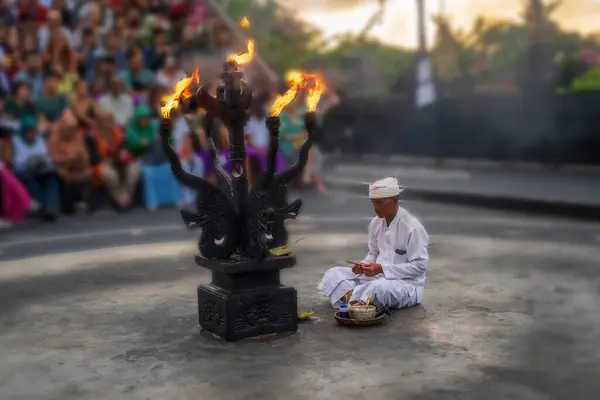Traveling to a new country can feel like stepping into someone else’s living room uninvited if you don’t know the local customs. The difference between an awkward tourist moment and a genuine cultural connection often comes down to preparation.
A little research beforehand can transform your trip from a series of confused encounters into meaningful exchanges with locals who appreciate your effort to understand their way of life. Smart travelers know that cultural awareness isn’t just about avoiding embarrassment—it’s about unlocking deeper experiences.
Here is a list of 18 cultural research tips that will help you navigate new destinations with confidence and respect.
Learn Basic Greetings and Polite Phrases

Memorizing a few key phrases in the local language opens doors faster than any tourist guidebook. Even if your pronunciation sounds terrible, locals usually appreciate the effort and often respond with patience and warmth.
Start with basics like ‘hello,’ ‘please,’ ‘thank you,’ and ‘excuse me’—these simple phrases can carry you through most interactions. Think of it like bringing a small gift to a dinner party; it’s not about perfection but showing respect for your hosts.
Research Religious Practices and Holy Sites

Understanding local religious customs prevents accidental disrespect at sacred places. Many temples, mosques, and churches have specific dress codes, photography rules, or visiting hours that tourists often overlook. Some places require covering your head, removing shoes, or avoiding certain areas during prayer times.
Researching these details beforehand saves you from awkward situations and shows genuine respect for beliefs that locals hold dear.
Like Travel Pug’s content? Follow us on MSN.
Understand Tipping Customs and Payment Methods

Tipping practices vary dramatically across cultures, and getting it wrong can range from mildly embarrassing to genuinely offensive. In Japan, tipping can actually insult your server, while in the United States, it’s practically mandatory. Some countries expect tips in cash only, others include service charges automatically, and a few prefer you round up to the nearest convenient amount.
Check whether your destination prefers cash, cards, or mobile payments too—some places still operate primarily on cash, while others have gone nearly cashless.
Study Local Dining Etiquette

Food culture reveals a lot about how societies function, and dining mistakes stick out like neon signs to locals. Some cultures eat with their hands, others consider it rude to finish everything on your plate, and many have specific rules about who eats first or how to hold chopsticks.
In some Middle Eastern countries, showing the sole of your foot while sitting is considered offensive, while in parts of Asia, slurping your noodles actually compliments the chef. These details might seem small, but they make the difference between blending in and standing out as a clueless tourist.
Learn About Personal Space and Physical Contact

Different cultures have vastly different comfort levels with physical proximity and touch. Scandinavians typically prefer more personal space than Italians, who might stand closer during conversations and use more hand gestures. Some cultures greet with handshakes, others with bows, kisses on cheeks, or slight nods.
Understanding these boundaries helps you navigate social situations without making others uncomfortable. It’s like learning the invisible rules of a dance—once you know the steps, everything flows more naturally.
Like Travel Pug’s content? Follow us on MSN.
Research Local Dress Codes and Fashion Norms

Clothing choices communicate respect and cultural awareness more than most travelers realize. Conservative societies often have strict guidelines about covering shoulders, knees, or hair, while some beach destinations are surprisingly formal in town areas. Business attire expectations also vary—what’s considered professional in California might be too casual for Tokyo.
Check weather patterns too, since appropriate clothing varies by season, and many tourists pack completely wrong for their destination’s climate during their visit.
Understand Gift-Giving Customs

Bringing gifts can strengthen relationships with new acquaintances, but cultural rules around gift-giving are surprisingly complex. Some cultures unwrap gifts immediately while others save them for later, certain colors or numbers are considered unlucky, and expensive gifts might embarrass recipients in some societies.
In many Asian cultures, receiving a gift with both hands shows respect, while in others, the wrapping paper matters as much as the contents. Research what’s appropriate for your specific situation—whether you’re visiting someone’s home or conducting business.
Study Transportation Etiquette

Public transportation systems often reflect deeper cultural values about community behavior and personal responsibility. Some cities expect passengers to queue orderly, while others operate more like organized chaos that somehow works. Many cultures have unwritten rules about giving up seats, talking on phones, eating, or playing music.
Metro systems in places like Japan operates with almost military precision and quiet respect, while bus culture in other countries might be more boisterous and social. Understanding these norms helps you navigate efficiently and respectfully.
Like Travel Pug’s content? Follow us on MSN.
Learn About Business Card Exchange

Business card etiquette might seem outdated in our digital age, but it remains crucial in many professional cultures worldwide. Japanese business card exchange is practically a choreographed ritual involving two hands, slight bows, and careful examination of the card received.
Some cultures expect you to keep business cards visible on the table during meetings, while others prefer discretion. Even the quality and design of your cards communicate messages about your professionalism and attention to detail.
Research Local Holidays and Festival Times

Timing your visit around local holidays can either enhance your experience dramatically or create unexpected challenges. Major religious holidays might close businesses for days, while festival seasons offer incredible cultural experiences but also crowded attractions and higher prices.
Some celebrations welcome tourists enthusiastically, others are more private family affairs where outsiders might feel intrusive. Understanding the local calendar helps you plan activities appropriately and shows respect for important cultural moments.
Understand Bargaining and Shopping Culture

Shopping interactions vary from fixed-price societies where haggling seems rude to markets where failing to negotiate means paying tourist prices. Some cultures view bargaining as an enjoyable social interaction, others see it as purely transactional, and a few consider it entirely inappropriate.
Learn whether tipping shop assistants is normal, if touching merchandise before buying is acceptable, and how to politely decline persistent vendors. These skills prove especially valuable in markets and tourist areas where cultural misunderstandings happen frequently.
Like Travel Pug’s content? Follow us on MSN.
Study Photography Etiquette and Restrictions

Camera rules extend far beyond obvious places like military installations or private property. Many cultures have strong feelings about photographing people, especially children, elderly individuals, or religious practitioners. Some tourist sites charge photography fees, others ban cameras entirely in certain areas, and street photography might be perfectly normal in one city but considered invasive in another.
Indigenous communities often have specific protocols about images, and some cultures believe photography can capture souls or bring bad luck.
Learn About Alcohol and Substance Customs

Drinking customs reveal deep cultural attitudes about socializing, business relationships, and personal behavior. Some cultures use alcohol as a social lubricant for business deals, others avoid it entirely for religious reasons, and many have specific rituals around toasting or sharing drinks.
Age restrictions, acceptable venues, and appropriate times for drinking vary significantly. Understanding these norms prevents awkward situations where you might offer alcohol to someone who doesn’t drink or refuse a culturally important toast.
Research Gender Roles and Interactions

Gender dynamics affect everything from business meetings to casual conversations, and assumptions based on your home culture can create serious misunderstandings. Some societies have strict guidelines about men and women interacting, others are completely egalitarian, and many fall somewhere between these extremes.
Understanding local expectations helps you navigate professional situations, social gatherings, and even simple interactions like asking for directions or ordering food.
Like Travel Pug’s content? Follow us on MSN.
Understand Time Concepts and Punctuality

Cultural attitudes toward time range from precise German efficiency to the more relaxed ‘island time’ found in tropical destinations. Some cultures consider arriving exactly on time as rude since it doesn’t give hosts preparation time, while others view lateness as deeply disrespectful.
Business meetings, social gatherings, and even transportation systems reflect these different relationships with time. Understanding local time culture prevents misunderstandings and helps you adjust your expectations appropriately.
Study Communication Styles and Directness

Communication patterns vary dramatically between cultures that value direct honesty and those that prefer indirect, harmony-preserving approaches. Germans might seem blunt to Americans, while Japanese communication can appear vague to Europeans used to explicit statements.
Some cultures use silence as communication, others fill quiet moments with conversation, and many have specific ways of expressing disagreement or dissatisfaction politely. Learning these patterns helps you interpret conversations correctly and respond appropriately.
Research Environmental and Sustainability Practices

Local environmental customs often reflect deeper cultural values about community responsibility and resource conservation. Some countries have strict recycling protocols, others emphasize water conservation, and many have specific attitudes about plastic use, energy consumption, or waste disposal.
Understanding these practices helps you behave as a responsible visitor and often saves money too. Many destinations now have eco-taxes or sustainability requirements that affect tourists directly.
Like Travel Pug’s content? Follow us on MSN.
Learn About Technology and Internet Usage

Digital customs and internet access vary more than most travelers expect, even in our connected world. Some countries have restricted social media platforms, others have different mobile payment systems, and many have specific etiquette around phone use in public spaces. Wi-Fi availability, data costs, and even electrical outlet types require research.
Some cultures embrace constant connectivity while others value digital detox periods, and business communications might happen through different platforms than you’re used to.
Making Cultural Connections That Last

Understanding cultural norms before traveling transforms you from a temporary visitor into someone who genuinely connects with local communities. These research efforts pay dividends throughout your journey, opening conversations with locals who appreciate your cultural awareness and creating experiences that go beyond typical tourist attractions.
The time spent learning about your destination’s cultural landscape becomes an investment in meaningful memories and authentic relationships that often extend far beyond your trip’s duration. Today’s interconnected world makes cultural research easier than ever, with online resources, cultural guides, and even local contacts available through social media and travel forums.
The effort you put into understanding cultural nuances before departure shows respect for your hosts and dramatically enriches your travel experience in ways that no guidebook or tour can replicate.
More from Travel Pug

- 20 Best Beach Towns in the Carolinas
- 13 Destinations Where Tourists Regularly Regret Their Trip
- 20 Things You Actually Get in First Class
- 20 Small Airports With Aviation Museums
- 20 Places in the U.S. That Are Perfect for a Reset Trip
Like Travel Pug’s content? Follow us on MSN.
